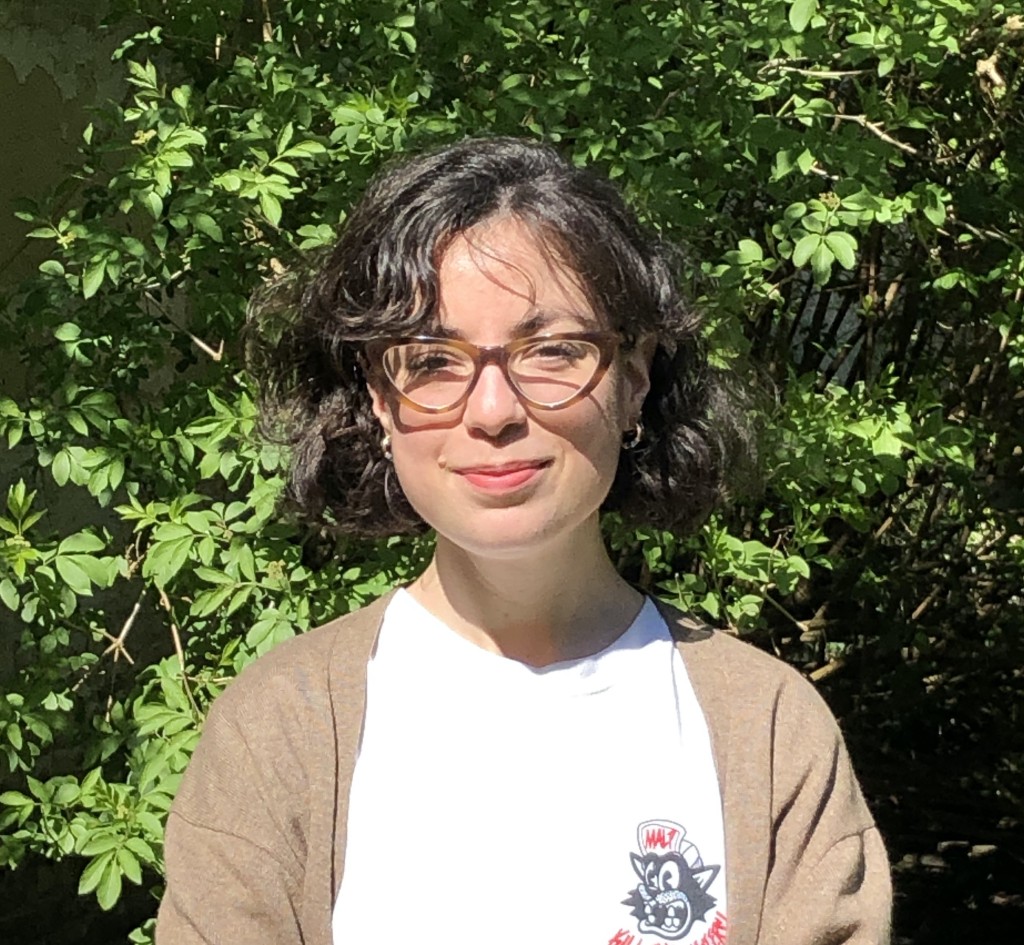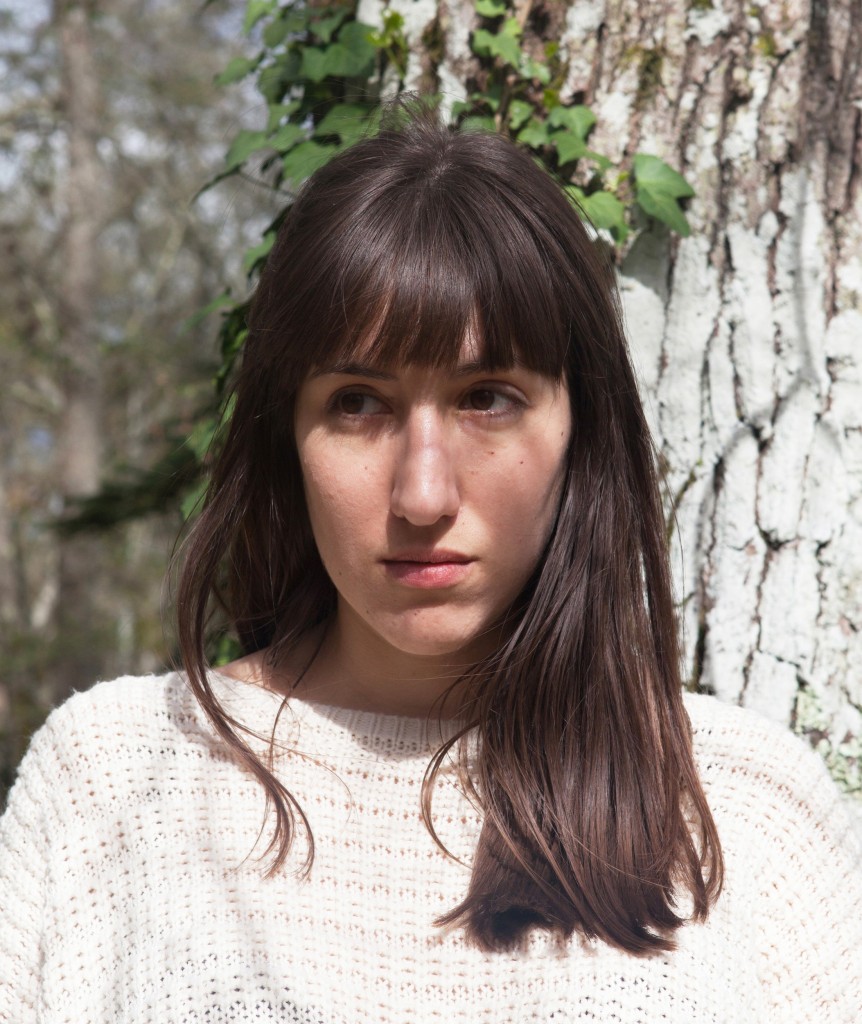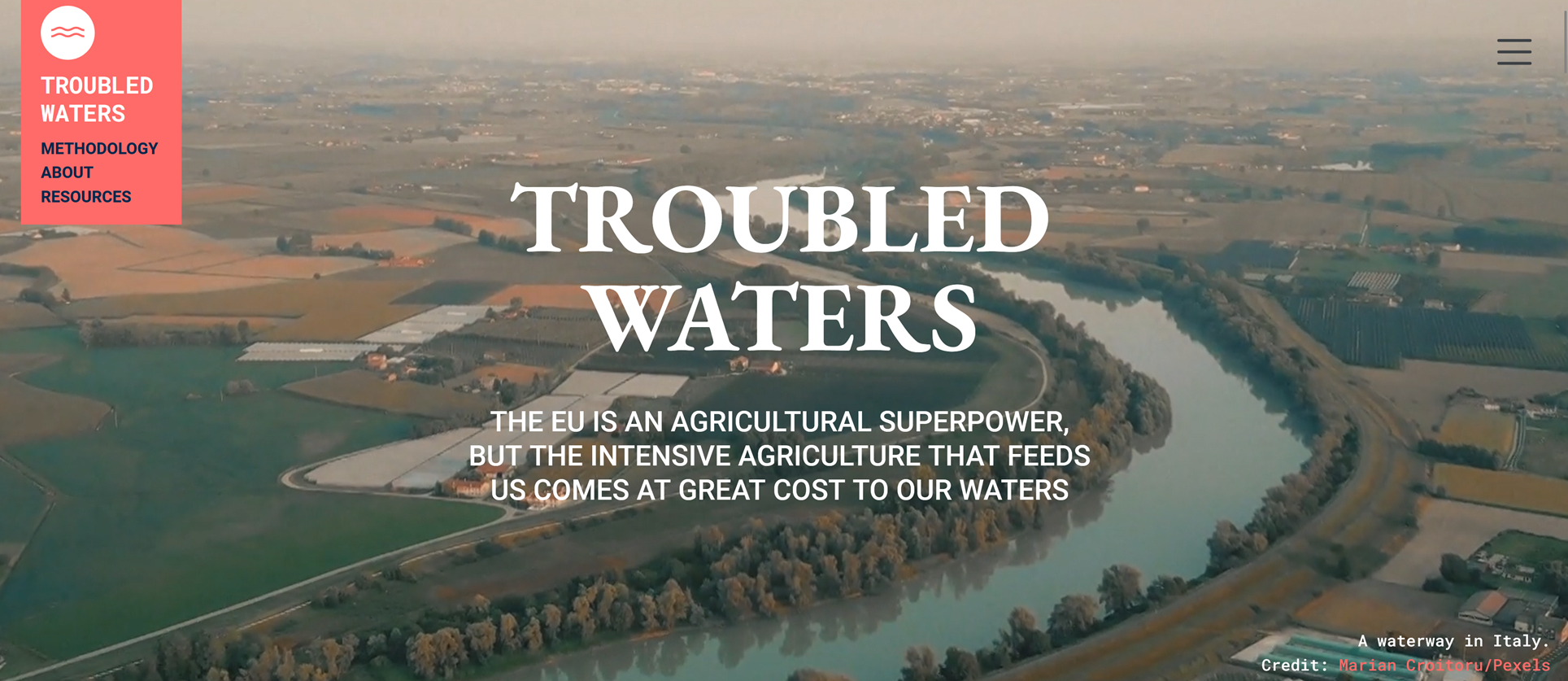Join us for a learning lunch on Wednesday, February 8, from 13:00 -14:15 CET. Click here to join.
60 per cent of Europe’s surface water (lakes, rivers etc.) are not in a good chemical or ecological status, and more than a quarter of the ground water is in the same state – and industrial agriculture remains one of the main pressures on our water bodies. These numbers are probably even underestimated, due to insufficient data and the current testing practices.
These are some of the conclusions highlighted in “Troubled Waters”, a new research project by Jelena Prtorić from Arena for Journalism in Europe and Luisa Izuzquiza from the German NGO FragDenStaat. The two have researched the status of Europe’s waterways, the severe impact of agricultural practices on water quality, and how the effort to curb and halt water pollution, at both European and national level, achieves “too little, too late”.
During this learning lunch, they will take you though their research process, share their main findings and the documents and the data obtained in the research. We will also leave some time for a brainstorming session about other possible stories that are left to be told.
The investigation’s website Troubled Waters features case studies from several countries, and more material will be added in coming months. Moreover, the website comes with a guide on how to submit FOI requests to the relevant authorities and institutions, with a resource section containing useful reads, and a database of more than 12,000 documents related to the EU water policies.
Jelena Prtorić and Luisa Izuzquiza’s investigation is a result of their one-year fellowship with the Bertha Foundation. Every year, the foundation launches a challenge for activists and investigative journalists around a specific topic. The 2022 topic was “Water”, and the question was “How is the relationship between politics and profit contributing to the degradation of our freshwater and oceans, and what can be done to ensure equitable access and protection of these finite resources for people and planet?”
Moderator: Sarah Pilz, Arena Food and Water network coordinator
Speakers:

Luisa Izuzquiza, a freedom of information activist and campaign coordinator at FragDenStaat
 Jelena Prtorić, a freelance journalist and programme curator for Dataharvest – European Investigative Journalism Conference (with Arena for Journalism in Europe)
Jelena Prtorić, a freelance journalist and programme curator for Dataharvest – European Investigative Journalism Conference (with Arena for Journalism in Europe)
